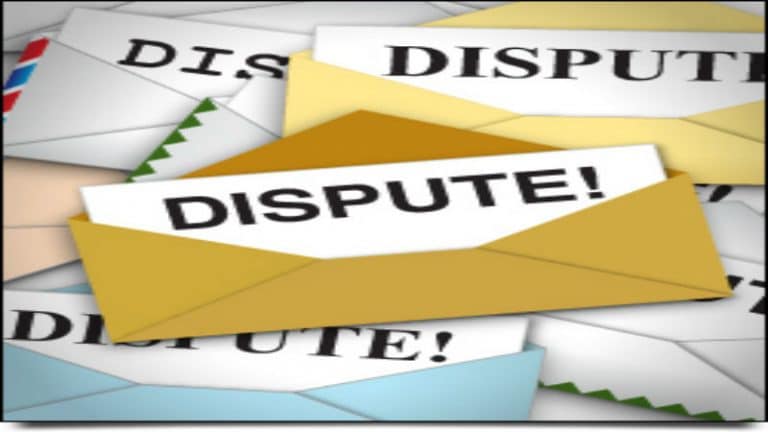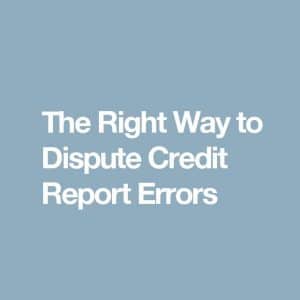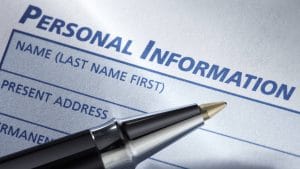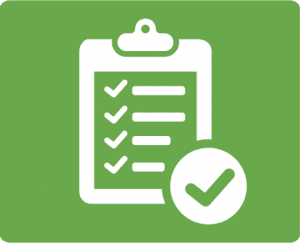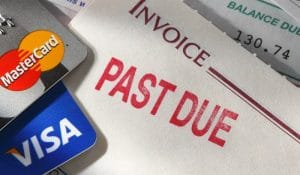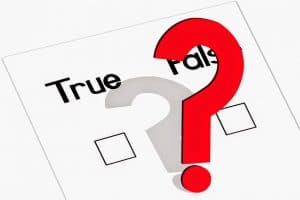Discovering negative information on your credit reports is never an enjoyable experience. However, when you believe that the negative credit information on your credit reports is incorrect your frustration can escalate to a whole new level. Fortunately, you have the right to dispute. What should be disputed on a credit report?
Negative credit information is a serious matter. It can lower your credit scores and, from there, start a bad chain reaction which can impact your entire financial well being. After all, credit problems can cause you to be turned down for basic necessities (i.e. housing, reliable transportation, new employment opportunities) or can result in you being charged much more in the instances when your applications are adversely approved.
Even seemingly insignificant credit reporting errors have the potential to hurt you financially. Here is an example. A medical collection which is 4 years old might be purchased by a new collection agency who then “re-ages” the account to make it appear as if the default just occurred. You might not realize it, but the re-aging of your account will likely lower your credit scores unfairly. As mentioned above, anytime your credit scores are lowered it can cost you – both in the form of missed opportunities and in the form of wasted money.
Your Right to Dispute
Thankfully the Fair Credit Reporting Act (FCRA) exists to help you whenever questionable, negative information finds its way onto your credit reports. Per the FCRA you have the right to dispute any information on your credit reports which you wish to have verified or with which you disagree. In fact, the FCRA does not restrict you from disputing anything which appears on a credit report. This means that as long as an item is appearing on one of your credit reports, you have the right to dispute it. Pretty much any item can be disputed on a credit report.
After an item is disputed on a credit report, the credit reporting agency (CRA) to whom you sent the dispute typically has 30 days to investigate your claim. This investigation will involve the CRA contacting the data furnisher (the company who originally reported the information about you in the first place) and asking the data furnisher to verify that the information is correct, and thus can be disputed on a credit report.
If a data furnisher verifies the information as accurate then nothing will change. However, if the data furnisher cannot verify the accuracy of the account then it may instruct the CRA to delete the offending entry from your report. Additionally, if the data furnisher does not respond to the CRA then the account will be deleted as “unverifiable.”
Items Which Can Be Disputed On A Credit Report
Although the FCRA affords you the right to expect only fair and accurate information to appear on your credit reports, you must be proactive in order to exercise that right. No one is going to check your credit reports for errors and dispute incorrect information for you (unless you have wisely chosen to hire a credit professional to work on your behalf).
Remember, the FCRA actually gives you the right to dispute any information contained on your credit reports. There are no restrictions in the FCRA which prohibit you from disputing an item. Here are a few examples of the most common types of credit information disputed by consumers.
-
Incorrect Personal Information
– This includes names, addresses, dates of birth, social security numbers, employment history, etc. Errors in your personal information will not directly impact your credit scores, but they could be a sign of a bigger problem such as identity theft or a mixed credit file. As such, ignoring these mistakes can be dangerous.
-
Incorrect Balances or Account Status
(i.e. Satisfied, Unsatisfied, Filed, Released, Discharged, Dismissed, etc.) – Errors which pertain to your balance or account status definitely have the ability to harm your credit scores. Ignoring such potential errors could be a costly mistake.
-
Accounts Which You Do Not Recognize
– Such credit reporting errors could indicate identity theft or a mixed credit file and have the potential to damage credit scores or cause other problems.
-
Incorrect Late Payments
– Credit reporting mistakes which pertain to your payment history are perhaps the most serious type of error due to the fact that they can cause severe credit score damage.
Questionable Information
– You can ask the credit reporting agencies to verify any information appearing on
your credit reports if you are unsure of the accuracy of the data reported.
